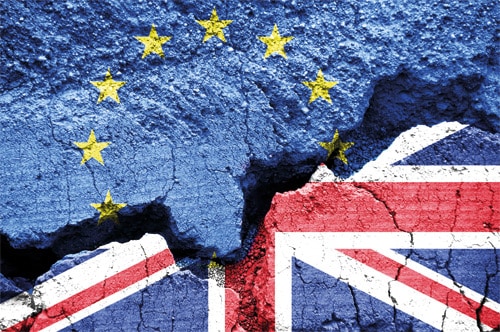
It split the Conservative party and been poo-pooed by President Trump, but Theresa May’s latest Brexit white paper has at least garnered the support of the UK biopharma industry.
The long-awaited white paper puts the flesh on the bones of the agreement reached by the Cabinet at talks a week ago and, according to the Prime Minister, will allow negotiations with the EU to continue whilst still delivering “the Brexit people voted for”.
Of course, the resignations in the meantime of Brexit Secretary David Davis and Foreign Secretary Boris Johnson, as well as two Conservative party chairs, suggest some in the government beg to differ, while Trump has suggested any such ‘soft Brexit’ approach stands in the way of a much-hoped-for UK-US trade deal – supposed to be the cornerstone of talks between the two leaders this week.
For the Association of the British Pharma Industry (ABPI) and BioIndustry Association (BIA), the white paper provides some encouraging detail on key issues affecting biopharma. They welcome the proposal to adhere to a common rulebook for manufactured goods that May maintains would continue to facilitate trade – but opponents suggest keep the UK wedded to the EU in all but name.
They also like the idea that the UK would continue to accept EMA regulations and contribute to the cost of running the agency “under new arrangements that recognise the UK will not be a Member State,” and the proposal that the UK would continue to apply EU customs rules in return for a zero tariff arrangement for all goods between the UK and EU.
Of course, the EU still has to respond to the paper. “Whilst today’s approach depends on agreement from both sides, continued cooperation between the UK and EU on the regulation of medicines is in the best interests of patient and public health,” say ABPI chief executive Mike Thompson and BIA CEO Steve Bates in a joint statement.
The industry groups note that the proposal “recognises the importance of the UK keeping supply chains operating efficiently… through application of a common rulebook for medicines and through the UK being an active participant in the EMA so that pharmaceuticals companies can continue to conduct one series of tests for use in the UK and in the EU”.
The ABPI and BIA point to other positives in the document, including the proposal that all authorisations and certifications undertaken under EU law – and those in process – should continue to be recognised as valid in both jurisdictions after the UK formally leaves the EU next March.
The UK also wants the MHRA to continue to play a full role in the EMA, including carrying out technical work, acting as lead authority for some new medicine assessments, and participating in safety monitoring and the new clinical trials framework. And it also seeks a science and innovation deal so the country can continue to take part in EU research funding programmes.
“Every month, 37 million packs of medicine arrive in the UK from the EU, with 45 million moving the other way,” say Thompson and Bates.
“Our industry’s priority throughout these negotiations is to ensure patients in both the UK and EU can continue to access the medicine and vaccines they need.”




